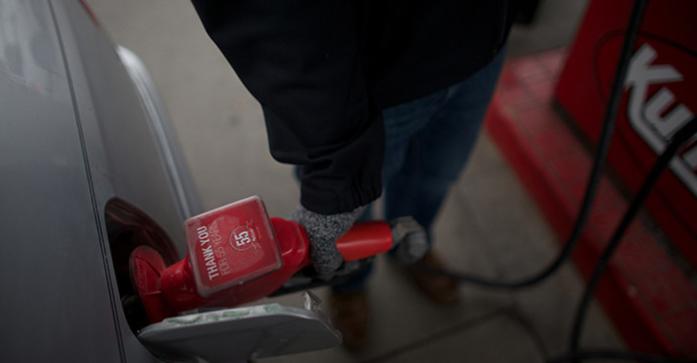As climate-change discussions continue in Paris at the climate conference, the most important fuel in the world, oil — a leading cause of the need for the confab in the first place — is instigating chaos for OPEC.
OPEC is a multinational group that used to be, essentially, the sole entity responsible for determining the price and supply of oil to the world. While the increased production of oil in countries outside of OPEC, including the U.S., has increased drastically over the past several years, the organization is still prominent and powerful.
Several sources are indicating that as the world begins to pay attention to the climate crisis and other countries enter the oil game, prices of crude oil could fall as low as $20 in 2016 (compared to almost $40 today; considered quite low compared to 2009).
As the cost of oil tanks (so to speak), some are speculating OPEC will tank with it and put the member countries on the brink of economic disaster. While down-economies anywhere in a globalized world may prove problematic, the Daily Iowan Editorial Board believes that the fall of OPEC could be an interesting, and necessary, domino in a chain that finally leads to increased environmental protection.
According to the New York Times, even members of OPEC are seeing the writing on the wall and have begun to realize just how detrimental oil dependence can be for the world, but especially for the very countries it has made so wealthy.
In fact, Ahmed Belhoul, chief executive of the state-owned United Arab Emirates clean energy company Masdar made the eerie comment: “I need to be living in a world where my grandchildren and my great-grandchildren will be able to live in a healthy environment.” While Belhoul is not an executive of an oil country, his country has been made very wealthy by the fuel and that he has come to the conclusion that something must be done to diminish the use of oil is indicative of a shift in world views.
In recent months, OPEC has abandoned its practice of limiting production as to drive up price, but as the Times article indicates, the cartel finds itself in a Catch-22.
If OPEC decreases production in a move to increase prices, it won’t gain any additional profit because the market is now flooded with non-OPEC producers who now also have a profound impact on the price. As Buhushan Bahree, an OPEC analyst at HIS, puts it, according to the Times, “What distinguishes OPEC members from other producers, now that the group sets neither prices nor output quotas? Nothing, really.”
However, if OPEC increases production and leans into the punch by attempting to regain control of the oil market and sell more oil, the countries are tempting fate, because many of OPEC’s countries are located in the Middle East — the region destined to be one of the most heavily affected by climate change and global warming. If global warming were to increase too drastically, parts of Saudi Arabia would become uninhabitable.
OPEC is facing a crisis largely brought on by the fact that it operates as a cartel, spending decades controlling the price of oil. While the organization has brought immense wealth to its countries, it has failed to diversify the investments of the producers. If OPEC falls, it may force these countries to invest in clean energy and may bring the rest of the world with it.



